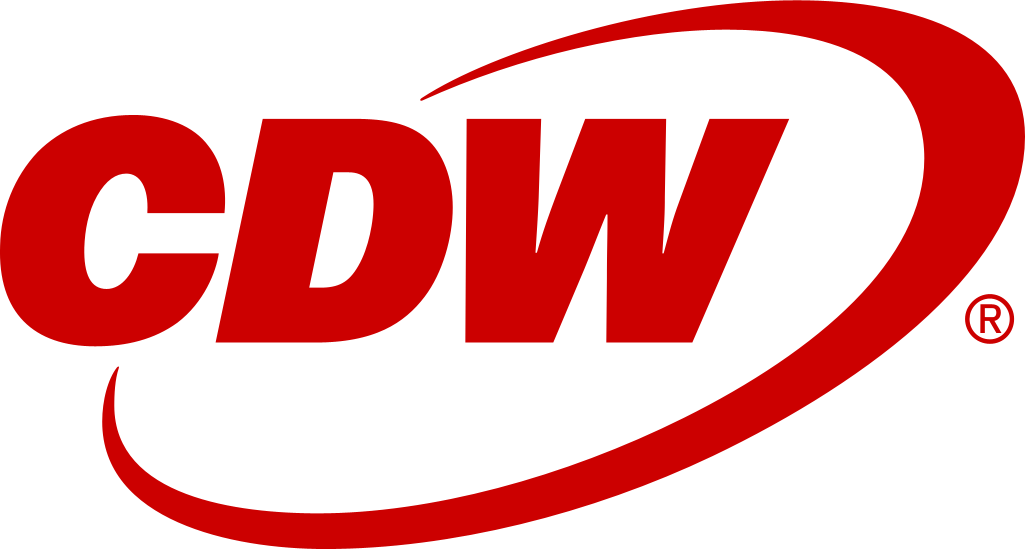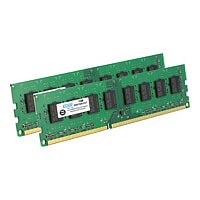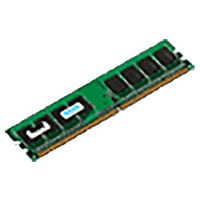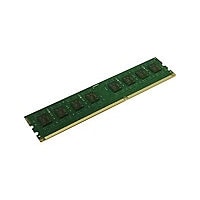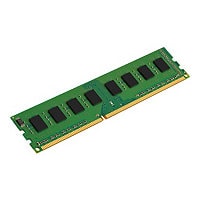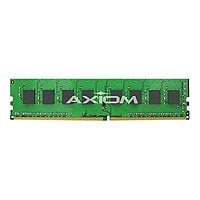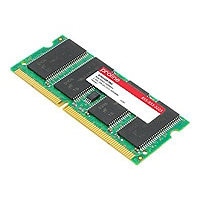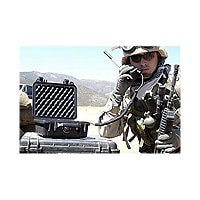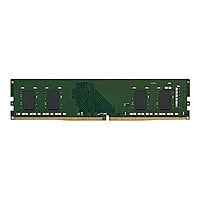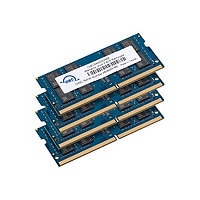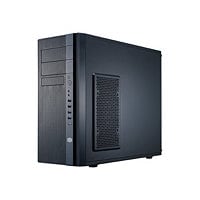Tech specs
1-8 of 306 reviews
What is our primary use case? Most of our clients are SMB. We have several support contracts, and as a way to standardize all the products and processes, we ask our clients to switch to Fortinet FortiGate as a firewall, and that's how we standardize our process. Most of our clients we support with a support contract have Fortinet FortiGate as a firewall on-premises. What is most valuable? It's easy to manage. The GUI is very simple, and what is very good is that every product, regardless of size, has the same interface. Most features are in every single product irrespective of the size. What needs improvement? Their support's response time can be better. In the past six months, they took quite a long time to respond to the support tickets. I don't know if they are overwhelmed with too much activity, but for the last six months, the support has not been very good. Previously, it was very good. For how long have I used the solution? I have dealt with Fortinet FortiGate for four or five years. What do I think about the stability of the solution? I would say that Fortinet FortiGate is stable. We have several appliances installed, but we encountered some trouble with the smaller models on three occasions, which somehow limited the inbound traffic. We had to send one in for a Return Merchandise Authorization (RMA), and Fortinet sent us a new appliance, which resolved the issue. The only downside is that the replacement process takes about two to three weeks. That has been the only problem we've experienced with the smaller model. What do I think about the scalability of the solution? The scalability of Fortinet FortiGate is mostly with the bigger appliances. It's not quite flexible once you buy one appliance; to scale up, you have to buy a new appliance, and there's no way to upgrade the appliance. The challenge is that you don't want to oversize the appliance because that is tied to the subscription. The price of the subscription is tied with the size of the appliance, so you have to size it very precisely, considering the future growth of the company. How are customer service and support? Their technical support is pretty good. Over the last six months, there has been a delay in response, but previously, it was very good. How would you rate customer service and support? Positive How was the initial setup? The initial setup for Fortinet FortiGate is pretty straightforward. What's my experience with pricing, setup cost, and licensing? My experience with the pricing, setup cost, and licensing for Fortinet FortiGate is quite good. I don't have a public site, such as in Azure, where I can see the pricing. I always have to go through the distributor, and that could take some time to get the real price for each appliance. What other advice do I have? When our client has two internet connections, we do Fortinet FortiGate SD-WAN configuration, and it works very well. I can't determine if there is better performance using SD-WAN, but it's much more stable. We did have some trouble with certain types of traffic that doesn't work well with SD-WAN, and we had to implement rules to stick to one of the connections, but those are exceptions. The traffic is much more fluent, but mostly it makes the connection much more stable. I would rate Fortinet FortiGate an eight out of ten. Which deployment model are you using for this solution? On-premises Disclaimer: My company has a business relationship with this vendor other than being a customer:Partner
What is our primary use case? My customers use Fortinet FortiGate for their branches and campuses; we have provided it for small retail and industrial networks. Chennai is totally based on MND and BFSI for the factories, and since Fortinet FortiGate provides OT Security, they have numerous features. In the same single firewall, they can use SD-WAN as well as OT signatures to have visibility for partners. What is most valuable? The best features of Fortinet FortiGate include selling a perpetual license as a primary benefit, and the license cost is not much compared to Cisco, Meraki, or HP. Feature-wise, I can rate Meraki over Fortinet FortiGate a seven or eight since they have micro-segmentation and application routing. They can detect real-time threats with FortiGuard, which is similar to Palo Alto. Now they are implementing AI features, and I recently went through the demo, which is amazing. The main benefits that Fortinet FortiGate brings to customers include that if you're going for a single fabric with core switches, access switches, and APs, compared to legacy Cisco or Aruba, te Fortinet FortiGate does not require a controller for the access points. Fortinet FortiGate itself acts as a controller. Similarly, they have FortiLink, which connects all appliances in a single stack, allowing maintenance with FortiManager and FortiAnalyzer. In comparison, Cisco requires a separate controller for SD-WAN and Nexus ACI controller, and other things require a Cisco DNA controller. However, with Fortinet FortiGate, it's simple to maintain using FortiManager and FortiAnalyzer, thus being very much easier and cost-efficient. What needs improvement? In terms of improvements for Fortinet FortiGate, they could offer evaluation licenses, as compared to Meraki, which provides a 90-day evaluation. In Fortinet FortiGate, they do not provide standard evaluation licenses; instead, we need to request them from the OEM through the account manager for POCs. If we want to conduct a demo, we need to work with real hardware. In comparison to Cisco, we have DCloud, which helps with providing demos to customers, but in Meraki, I need to reach out to them, book a lab, and they need to provide all the hardware. I need remote access and L3 engineers to program it; only then can I offer a real-time demo to the customer. For how long have I used the solution? I have been working with the Fortinet FortiGate for three years. What do I think about the stability of the solution? My impression of FortiGate's performance is that it performs quite well; when performance issues arise, it's not the box, it's the users, traffic, and bandwidth overloading. Apart from that, whatever the capacity of the hardware is, it is performing quite well. What do I think about the scalability of the solution? Regarding the scalability of the Fortinet FortiGate, if it is a VM, it is easy. However, if we're talking about hardware, in the designing phase, we need to consider being about 30% or 20% higher to make scaling easy. Otherwise, they need to change the entire hardware. That's why we are pushing managed services, so the ISP and MSSP partner will take care of scalability. Still, in terms of scalability, it is quite difficult; if they are expanding, they need to change the hardware for the new hardware. How are customer service and support? I would rate the technical support of Fortinet FortiGate as a five because it is not as strong as Cisco. Additionally, the turnaround time is very high compared to Cisco. How would you rate customer service and support? Positive How was the initial setup? My impressions of the setup costs are that they are reasonable; definitely, they are reasonable. What was our ROI? The change in return on investment after implementing Fortinet FortiGate solutions for the SD-WAN for hybrid workforces is evident; we did it five years ago for one customer, and now the end of support and end of sale life has come. I can see a 10% to 20% infrastructure change. We received 2% to 3% higher than the original sales, and we have also done the renewals. They are also increasing branches, and overall, the RMS has increased by 50% to 60%. What's my experience with pricing, setup cost, and licensing? My impressions of the setup costs are that they are reasonable. What other advice do I have? For users who would like to start working with Fortinet FortiGate, my recommendation is that it will not create a problem, but once it has been programmed correctly, and all the use cases are rightly fitted, you can forget the issues. The only thing that needs updating is the threat intelligence and network configurations. Apart from that, maintaining FortiGate is easy. I work with the dynamic segmentation feature in the Fortinet FortiGate. The dynamic segmentation feature plays a significant role in preventing the lateral spread of different threats within the data center environments; for example, for web hosting, there are multiple OEMs who have different warehousing solutions, and they don't want to mix the data between their OEMs. In this case, dynamic segmentation comes into the picture, allowing me to create multiple VRs for the data center within a single tunnel for data segregation. I work with some customers who are going to integrate the unified SASE capabilities in Fortinet FortiGate, and we are working actively on that, but up until now, I've not taken any deployment on the SASE part. We are working with multiple customers, but they are not suggesting it yet. As of now, I just went through the demo for the AI regarding the SD-WAN part, and I didn't go for the data center things. If you ask me about the SD-WAN front for deployment or integrating the SASE along with that, it is comparatively easy. Within minutes, I can see it in real-time; they can deploy five branches or 10 branches within 10 minutes or 20 minutes. I haven't worked with the hardware-assisted DDoS protection in the Fortinet FortiGate; instead, I have worked with Radware or Arbor for DDoS solutions. On a scale of one to ten, I rate Fortinet FortiGate a nine. Disclaimer: My company has a business relationship with this vendor other than being a customer:Partner
What is our primary use case? We use Fortinet FortiGate for gateway security, specifically for VPN access, security control, and filtering of traffic. For net monitoring, it has the capability to put the network traffic over to the analyzer. We use FortiAnalyzer to look at the traffic and to see what's happening, what's hitting our gateway, and what our users are doing. We use filtering rules on top of that. What is most valuable? Fortinet FortiGate is pretty robust. The updates and firmware releases are pretty timely. They have a good product revision and review system, so they are constantly reviewing their configuration and the different mechanisms that are used on Fortinet FortiGate. They review that periodically and provide new definitions and updates. We have quarterly fixes, updates, and releases, and there are constant new CVEs coming out. They are always keeping ahead of the threat monitoring system that notifies us of the latest landscape, what's new in the phishing landscape, botnets, rootkits, and all of those different malicious tools that are out there. We appreciate the filtering capabilities as well. It integrates well with the SD-WAN capabilities. It works easily, and the transition was quite simple with literally no downtime. It is very customizable. We have multiple different subnets going into that FortiGate controller. We have used various models and various designs. We can diversify the number of links coming in either the WAN gateways or the local LANs. We can separate various subnets across the LAN segment. It's quite diverse. What needs improvement? We haven't tapped into most of the functionalities that Fortinet FortiGate offers because we're using it just for gateway security. One of the things that I would prefer is a more expansive use of their analyzer. They could do more work on FortiAnalyzer in terms of the data and the information coming from it. I'm not sure if it is because the team managing our analyzer isn't giving us all the information that's required. It could be something based on our own usage of the platform. As we continue to use the appliance, we may learn more about the utility and functionalities that are offered. For how long have I used the solution? I have been using Fortinet FortiGate for about seven years. What do I think about the stability of the solution? Fortinet FortiGate is pretty stable, especially the enterprise version. The reliability of Fortinet FortiGate is through the roof. We're experiencing 99.999% availability consistently. Fortinet FortiGate only goes offline for maintenance. I have seen it running for two years nonstop without doing a reboot. They're pretty stable and energy-efficient, and I make a lot of headroom for growth, specifying my units at least 40% greater than what I need. They are working within the requirements of their provision, and usually, the published specifications for the units are within the range of their operational usage. What do I think about the scalability of the solution? Scalability is all based on our design. Based on our network design, we can select or pick a product from the product listing that can scale with the growth potential of the organization within a specific time period. We tend to do our planning within time spans, such as the next 10 years, 5 years, or whatever the growth prospect is for that period. We put the units in place that can grow along with that growth development timeline. How are customer service and support? I would rate Fortinet's support a solid eight because I'm hard on my support. They're responsive to a greater extent. There are lots of things that I want to get done that aren't done on time. However, the local support that we use for Fortinet FortiGate is pretty technically competent and capable of managing the unit and delivering the functionality we need from the device. How would you rate customer service and support? Positive How was the initial setup? We outsource the management and configuration of Fortinet FortiGate to a third-party SOC center in Ireland. We don't do that ourselves, but we do manage it and go out to the third party to tell them what we want. They will recommend different methodologies, capabilities, or new features that we can implement, such as SD-WAN, and go ahead with it. We don't manage and do the configuration ourselves. My team's role is pretty much just to operate and utilize the service. They handle the initial setup in the background. I just give them the requirements, and the engineers respond. What about the implementation team? We interacted with two engineers, but I'm not sure what the backend team is like. What was our ROI? It's very hard to measure return on investment with security because security is so dynamic. Based on our plan, the ROI has been pretty good. Whatever we expected and planned for, as far as usage goes, I can extend and push my Fortinet FortiGate up to maybe three or four quarters past its end of life. It has performed as expected in that concern, giving us good ROI for what we planned. What's my experience with pricing, setup cost, and licensing? It was pretty affordable. We did go a little bit above MSRP, but the service pack that was included was quite worth the additional costs. It is competitively priced compared to other major players in the market. It is significantly cheaper than Check Point, which is a primary competitor. Additionally, its pricing is comparable to that of Cisco's ASA and a few other vendors. Besides the pricing, we chose Fortinet FortiGate because of the service providers that are here locally and the support for the unit and the product. What other advice do I have? I would rate Fortinet FortiGate a nine out of ten. Which deployment model are you using for this solution? On-premises Disclaimer: My company does not have a business relationship with this vendor other than being a customer.
What is our primary use case? The main use case for Fortinet FortiGate is as a perimeter firewall between the internet and the LAN to protect the networks from the internet. We are using Fortinet FortiGate in the education industry. What is most valuable? One of the best features of Fortinet FortiGate is that it's a very powerful equipment that gives many security features in a single box with good performance, and the user interface is friendly to use and configure. The performance is good compared to other vendors that I have used, and the price is competitive. I am utilizing Fortinet FortiGate's SD-WAN, and my experience in integrating the SD-WAN capabilities with Fortinet FortiGate in my network has been good. It was easy to integrate the SD-WAN capabilities with Fortinet FortiGate, and from my experience and background, it was easier with Fortinet FortiGate compared to other vendors. The monitoring after installing the SD-WAN is also easier. It is easy to see how it behaves and how the traffic goes through the different links. It's improving our performance with SD-WAN. What needs improvement? If you want to conduct some statistics or generate a report to understand the status of your configuration or filtering, you need FortiGate Analyzer for long-term data retention. FortiGate can only retain logs for 24 hours or 7 days. I'm not sure if it holds them for a longer period, such as for a month. It will be useful for assessing our strategy and monitoring our environment without investing in FortiGate Analyzer. It would be beneficial if Fortinet could enhance the FortiGate by providing more statistical and monitoring views for a longer timeframe, rather than requiring access to FortiGate Analyzer. Without Fortinet Analyzer, currently, I cannot see past events. For how long have I used the solution? I have had more than 10 years of experience with Fortinet FortiGate. What do I think about the stability of the solution? Fortinet FortiGate is very stable, and I have never seen a Fortinet FortiGate get stuck because of performance or memory issues. They have good hardware and ASICs, and I have not experienced any performance issues with all the features I have implemented in it. What do I think about the scalability of the solution? Fortinet FortiGate scales effectively, and even though I can't recall a specific use case regarding scalability, I am sure it is very scalable. How are customer service and support? Their support is very good. I would rate them a nine out of ten. When I open a case or provide feedback, they are very responsive. If I don’t get the answer I need, I can call them directly, which also deserves a nine. How would you rate customer service and support? Positive How was the initial setup? The initial setup is straightforward and easy. The duration depends on the size of the installation and the features you want to implement. It can take anywhere from one day to several days. In our case, we had to install it across all our campuses. We have 12 campuses with FortiGate devices installed at the central location. The main setup took about two to three days at the main site. After that, I prepared the templates for the other sites, which took about half a day to install once they were ready. Overall, if you are trained and familiar with the FortiGate environment, it can be quite straightforward. If you're not familiar, it may take some time to read and prepare everything; however, it’s not particularly difficult. What about the implementation team? Typically, we have a variety of roles in our environment, so I deal with multiple tasks. We need someone who understands the network, so I also function as a network engineer. It requires knowledge of both networking and security, hence network security. What was our ROI? It reduces the cost of operations by automating many tasks that I would do manually. It also helps to be proactive by detecting things and proposing features to improve the security posture. In that regard, I have seen a return on investment because it reduces the cost of operations. It saves about 20% of time per month. What's my experience with pricing, setup cost, and licensing? The pricing is comprehensive and clear. You can easily understand what you are purchasing, including which features correspond to each license and maintenance contract. Overall, the information is straightforward. Additionally, compared to other vendors, their prices are competitive. What other advice do I have? I have not yet tested or installed Fortinet unified SASE, but from what I read and my knowledge, it is something that may be good to integrate with existing systems. However, I cannot confirm its effectiveness as I haven't tested it yet. I do not utilize Fortinet FortiGate's data center solution at the moment. I didn't work with all the FortiGate equipment. Based on the equipment I worked with, I would rate it an eight out of ten. It's very good. Which deployment model are you using for this solution? On-premises Disclaimer: My company does not have a business relationship with this vendor other than being a customer.
What is our primary use case? I was involved in deciding on Fortinet FortiGate, but I am not the one who's using it on a day-to-day basis. We want to make sure that our on-prem servers are protected. We basically use VPN to configure that on Fortinet FortiGate, so that is the major purpose, and that part is working well. How has it helped my organization? We have not had any incidents where our servers got compromised. It's all good. For security, it has all the required features, such as the web filter and DNS filter. Also, for accessing the network, we have various rules. What is most valuable? Our IT staff says that some of the security features are better than Sophos's. Its usability is good. We can easily navigate the system, and we have a very good user experience. It's easier to understand the software compared to Sophos, which I feel is a little more technical and could be difficult for a first-time user. What needs improvement? I want some additional features. For example, I want something to ensure that when we are using Google email or Microsoft email, or Google Workspace, emails can only be accessed on designated machines given to our employees. I would like them to access data from designated machines, not from any machine. It should work for designated mobiles and laptops. I don't know if Fortinet provides something like that out of the box. For how long have I used the solution? We have just installed Fortinet FortiGate, and it has been two months since our installation. What do I think about the stability of the solution? Fortinet FortiGate is stable. What do I think about the scalability of the solution? Fortinet FortiGate is scalable. How are customer service and support? We are going through the vendor for technical support. If we have any issues, we raise a ticket, and they respond immediately. How would you rate customer service and support? Positive Which solution did I use previously and why did I switch? Previously, we were using another firewall device, Sophos. Compared to that, Fortinet FortiGate provides more features and better security. Fortinet FortiGate supports WAN migration. Fortinet FortiGate is also better in terms of speed. In the dashboard, we can get all the stats reports and logs. How was the initial setup? Deployment is not very difficult because they have their migration tool. What about the implementation team? We are facing some challenges. We are working with a third-party vendor, not FortiGate directly, for the installation and other things. The problem is that their knowledge is very limited. We are facing some challenges. With Sophos, we could enable multi-factor authentication for VPN users. FortiGate also allows that, as per our initial analysis. The people we are working with are not able to configure MFA. They are having some technical issues. Fortinet needs to ensure that its partners are well-trained. Only two people were involved in the deployment process. The vendor side had their own technician, and we had one person here. What's my experience with pricing, setup cost, and licensing? Cost-wise, there is not much difference from Sophos, but feature-wise, we get more features. Which other solutions did I evaluate? We did some comparisons between Fortinet FortiGate and Sophos. We went with Fortinet FortiGate because of the security features and easy-to-understand console. What other advice do I have? I would rate Fortinet FortiGate an eight out of ten. Which deployment model are you using for this solution? On-premises Disclaimer: My company does not have a business relationship with this vendor other than being a customer.
What is our primary use case? We are using it for security purposes. We have deployed it across multiple locations where we are already using it. What is most valuable? The security features are valuable, particularly the ransomware attack protection features. Fortinet FortiGate provides excellent security against ransomware attacks. What needs improvement? It contains every feature that is required. The things we require are already sorted out, so there isn't any scope for improvement as far as our requirements go. However, its price can be better. For how long have I used the solution? We have been using it for more than one and a half months. What do I think about the stability of the solution? It's stable. I would rate it an eight out of ten for stability. What do I think about the scalability of the solution? It's scalable. I would rate it a nine out of ten for scalability. I am handling all the operations. We have multiple staff members at multiple locations. How are customer service and support? Coming from a technical background, there hasn't been any requirement to speak with customer care representatives. The manual provided covers everything comprehensively. How would you rate customer service and support? Neutral Which solution did I use previously and why did I switch? I have experience with Sophos, Fortinet FortiGate, and SonicWall. How was the initial setup? We purchased it through our vendor. Our company doesn't prefer to make purchases through online shopping platforms such as Amazon and Flipkart. What was our ROI? We have seen a return on investment of more than 20%. What's my experience with pricing, setup cost, and licensing? It is somewhat expensive compared to other solutions such as Sophos. What other advice do I have? I would recommend it to others. I would rate Fortinet FortiGate a nine out of ten. There isn't a need to compare it with anyone else because Fortinet FortiGate is at the top of the market. Which deployment model are you using for this solution? Private Cloud Disclaimer: My company does not have a business relationship with this vendor other than being a customer.
What is our primary use case? We use Fortinet FortiGate to help protect and secure mission-critical data. There are policies and rules that we apply, and there is an intrusion prevention system that notifies if there are critical vulnerabilities on some clients. What is most valuable? I assess the security services provided by Fortinet FortiGate, such as URL filtering and DNS filtering, as quite good; they are quite effective. Fortinet FortiGate is rather sustainable; it's a good, stable product that gets faster and uses less power with new versions. It helps us remediate threats more quickly because we have specialists who can work with it rather effectively. When there is an alert on the Fortinet FortiGate, they work together with our FortiAnalyzer and can quickly remediate the incidents. What needs improvement? They should do a better job in testing when they put out a new release because when a new software version is released, it is not always stable or does not always have all the previous features working correctly. They should do more testing or launch a new version later when they have tested it more thoroughly. They already did a good job in their GUI, but they can make more features available in the GUI that are still only accessible through the command line. For how long have I used the solution? My proper experience is only two or three years, but in the company, they have been using it for over 10 years. What do I think about the stability of the solution? In terms of network and security convergence, they are there, but we are not currently using them because in the office itself, we have other brands of switches and access points. It's now not quite stable in the demo lab environment; we are now on the latest version, but in the production environment, we are not. Production is always on a lower version. What do I think about the scalability of the solution? It is scalable. How are customer service and support? I would give Fortinet's technical support an eight out of 10; they are responsive and helpful. How would you rate customer service and support? Positive Which solution did I use previously and why did I switch? I previously used Sophos before Fortinet FortiGate. How was the initial setup? If you first implement Fortinet FortiGate to get it up and running, it takes just a couple of minutes, but to get all the policies configured correctly, it takes a couple of days. What about the implementation team? For my company, Exclusive Networks, the whole company had three or four engineers involved. What was our ROI? We have seen a return on investment from using Fortinet FortiGate for integration with the SOC team. The automation part is giving us a cost benefit and speed; we can react faster. What's my experience with pricing, setup cost, and licensing? The price-to-performance ratio from using Fortinet FortiGate is very good; I would give it a nine out of 10. It has helped save on costs due to reduced power consumption. Which other solutions did I evaluate? Performance is the reason I switched from Sophos to Fortinet FortiGate. It has good value for money, ease of use, and a higher security level, with better security solutions. It's more expensive, but it offers a really good total cost of ownership and is still considerably cheaper than Palo Alto. What other advice do I have? I would suggest to anyone considering purchasing Fortinet FortiGate's data center firewall to get training to understand very thoroughly how FortiOS works, and if you have several Fortinet FortiGates, to go for a FortiManager with the necessary training. The users who work with Fortinet FortiGate are only the IT people, around three or four. Locally, we have around 60 end-users for Fortinet FortiGate. The biggest lesson would be that Fortinet FortiGate provides a high level of security at a good total cost of ownership. I would give Fortinet FortiGate an overall rating of nine. Which deployment model are you using for this solution? On-premises If public cloud, private cloud, or hybrid cloud, which cloud provider do you use? Other Disclaimer: My company has a business relationship with this vendor other than being a customer:Partner
What is our primary use case? We use Fortinet FortiGate for the firewall as well as for the VPN. Any of the users outside the organization use the VPN. Any staff members working outside the office headquarters or our office location use the VPN. The main aspect that I deal with is URL blocking and web access. I don't work with other aspects of this firewall. How has it helped my organization? It has upscaled our security posture, especially regarding external connectivity, because any access or connection from the company has to go through the Fortinet FortiGate firewall. It's doing a pretty good job. We do not have any complaints there. Anything that we don't want to allow is not coming in. Anything we want to allow is not being blocked. We always have the granular control where we can block malicious IPs or subnets if needed. Geofencing allows us to limit the countries from which we allow IP connections. There are many features that I may not even know or haven't explored, but in general, Fortinet FortiGate is doing a pretty good job for us. What is most valuable? The web controls are what I appreciate about Fortinet FortiGate. We have extensive controls over areas where we could block external-facing IPs, external URLs. We can do geo-fencing with the firewalls, which is a good feature. What needs improvement? There are too many updates coming for VPN, and the VPN keeps disconnecting frequently, which I find problematic. It does what it's supposed to do, but I practically face reconnection issues with the VPN. Regarding the Fortinet FortiGate firewall, I don't have any input. My scope is limited. For how long have I used the solution? I have been using Fortinet FortiGate for around three years. What do I think about the stability of the solution? Fortinet FortiGate is stable. We haven't seen any latency issues related to it, though we do experience latency from ISPs. What do I think about the scalability of the solution? I would rate the scalability as eight out of ten based purely on my exposure to security controls relating to URL blocking and website access. How are customer service and support? I haven't had a chance to work with Fortinet FortiGate technical support, but from my colleagues' experience, they say the Fortinet FortiGate people are easy to reach but hard to schedule time with. It's not as easy as having the Fortinet FortiGate engineer on the call and getting other teams involved; it requires careful arrangements to join in with the Fortinet team. I would give their support a neutral score of maybe five. How would you rate customer service and support? Neutral Which solution did I use previously and why did I switch? I don't know why we switched to Fortinet FortiGate from Juniper; it's a management decision. How was the initial setup? I was not involved in the deployment. I think it's not that difficult; there's no complexity involved as long as we are clear on what we want to do. We have it on both cloud and on-premises. What was our ROI? I was not part of the team that implemented it. I don't know how much they invested, but it would be worth the investment. What other advice do I have? My overall experience with Fortinet FortiGate rates as eight out of ten. Disclaimer: My company does not have a business relationship with this vendor other than being a customer.
